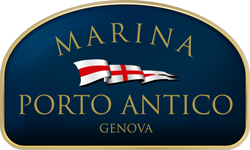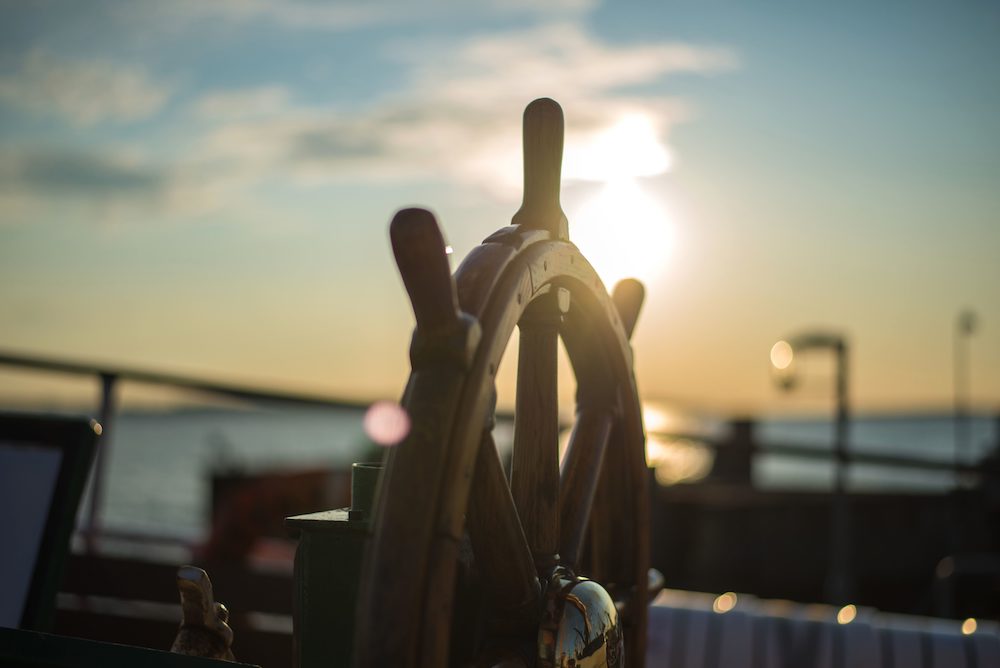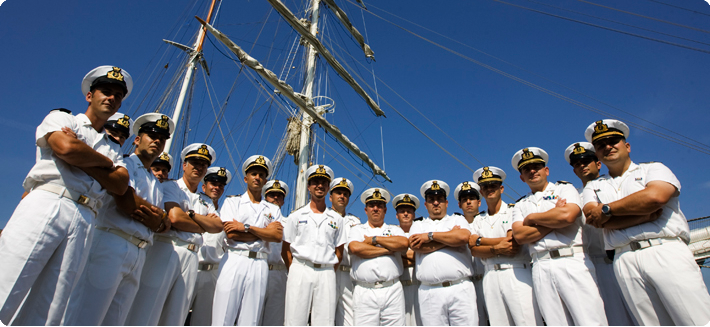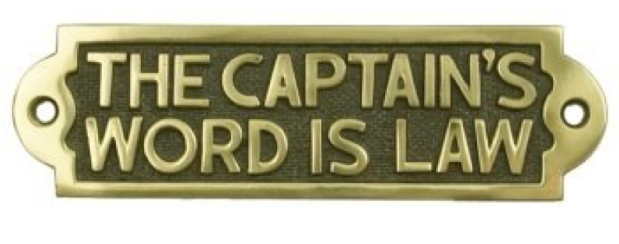The boating license officially replaces the more evocative command qualification title that the navigation code confers to those who take the exams: only in this way is it possible to operate a sailing or motor vessel that is more powerful or longer than a simple small craft.
It is therefore obvious that the “licensed operator,” while pretending to be motivated by an abstruse bureaucratic constraint, in certain circumstances feels intimately gratified to possess the “certificate” that distinguishes them from other navigators. They don’t constantly show it off, but on certain occasions, with those they deem appropriate, they let slip the triumphant admission
That was an example of dialogue between initiates who recognize each other by revealing the secret codes of jargon known to few chosen ones…
The boating license is essentially an indispensable document that is shown upon request by the authorities responsible for inspections, but it becomes a symbol for friends, dock neighbors, and all others who, by sight, measure the length of the boat or estimate the engine power.
Here is that document, regenerated for some years now as a magnetic plastic card, similar to the many others that crowd our wallets, supported by countless regulations that largely derive from the navigation code, but also from other laws of the Italian State.
Indeed, for our legislator, for the purposes of applying the provisions of the navigation code, related regulations and other special laws, pleasure craft are equivalent in all respects to merchant ships of more limited tonnage.
And here the mechanism kicks in whereby the cryptic “offshore,” which translated for ordinary mortals means “beyond twelve miles from the coast,” simultaneously also becomes “without other limits” and elevates the licensed operator of this category to command of “offshore” vessels which, in the common meaning of our maritime discipline, equates the simple “licensed operator” to the “captain” of a transatlantic liner with honors, but also with the burdens that such a position entails.
Whether this is right or completely wrong I leave for you to decide; however, under Italian law our licensed operator, captain of a vessel, finding himself on the high seas, will be invested with the exercise of powers that are transmitted to him directly by the State and that he must exercise by virtue of the title that derives from his position on board.
The captain assumes disciplinary powers both toward the crew and toward passengers, since his authority extends to actual powers of judicial police as he is recognized as having the quality of head of a traveling community.
Someone will smile knowingly and think that these attributions are just exaggerations, but I assure you that this is not the case at all if you consider that on certain vessels the port authority has expressly established in the navigation documents what the minimum number of crew necessary for safe navigation of a vessel should be.
By doing so, even if the number is trivially small, that is two people, a hierarchy has been effectively established whereby one will be the captain and another must obligatorily consider himself subordinate to the first, while every other person transported will fall under the generic qualification of passenger.
“Shall we go for a boat ride?” thus takes on different meanings depending on who extends the invitation: it takes on full responsibility for whoever must operate the vessel or presupposes blind obedience for whoever will simply be transported.
On the other hand, if the ship’s documents should provide for a minimum crew of two people, whoever embarks, alone with the captain, should become aware that, by casting off the moorings, they will submit to the captain’s authority. The latter



